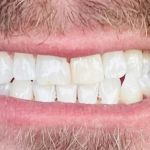
- understanding-the-nature-of-dental-veneers - Understanding the Nature of Dental Veneers
- daily-routines-that-protect-your-veneers - Daily Routines That Protect Your Veneers
- foods-and-habits-to-avoid-for-longevity - Foods and Habits to Avoid for Veneer Longevity
- professional-cleaning-and-checkups - The Role of Professional Cleaning and Checkups
- real-story-damage-and-lesson-in-care - Real Story: A Lesson Learned from Veneer Damage
- common-mistakes-and-how-to-avoid-them - Common Mistakes in Veneer Care and How to Avoid Them
- trusted-care-products-from-dentistry-toothtruth - Trusted Care Products and Advice from Dentistry Toothtruth
1. Understanding the Nature of Dental Veneers
Dental veneers are thin, custom-made shells—typically porcelain or composite resin—bonded to the front of your teeth to improve appearance. While they’re designed to be durable, they’re not invincible. Learning how to care for dental veneers long term maintenance starts with understanding their material and limitations.
Porcelain veneers resist stains better than natural teeth but can still chip or wear with poor habits. Composite veneers, while more affordable, may require more frequent upkeep. Knowing what you have sets the tone for the care it deserves.
2. Daily Routines That Protect Your Veneers
Your day-to-day habits are the foundation of veneer longevity. A soft-bristled toothbrush and non-abrasive toothpaste are essentials. Brushing twice daily and flossing gently prevent plaque buildup along the gumline, which can otherwise cause veneer edges to weaken.
Consider using an electric toothbrush for consistent pressure and motion. Fluoride mouthwash can help strengthen surrounding enamel. Also, avoid biting pens or fingernails—this unconscious stress can shorten your veneer’s life. Patients who follow this simple routine often report their veneers looking perfect even after a decade.
3. Foods and Habits to Avoid for Veneer Longevity
Caring for dental veneers long term includes being mindful of what goes in your mouth. Hard foods like ice, hard candy, and raw carrots can crack veneers. Staining agents—coffee, red wine, tobacco—won’t ruin porcelain, but over time they can affect the bonding material or surrounding teeth, causing uneven coloration.
Bruxism (teeth grinding) is another hidden enemy. If you grind at night, a custom nightguard is highly recommended. It protects not only your veneers but your entire dental structure. Many patients underestimate the impact of nighttime habits until irreversible damage is done.
4. The Role of Professional Cleaning and Checkups
Visiting your dentist every six months is more than just routine—it's essential for maintaining veneers. During these visits, your dentist can:
• Check veneer bonding and detect micro-damage early
• Polish veneers without harming the surface
• Evaluate bite and recommend adjustments if needed
These professional assessments catch issues you can’t feel or see, like subtle shifts in veneer positioning or gum recession. Ignoring these appointments is one of the leading causes of premature veneer replacement.
5. Real Story: A Lesson Learned from Veneer Damage
Jason, a 42-year-old executive from Chicago, got his veneers five years ago. “I loved the look but thought once they were in, I was set,” he says. Jason skipped cleanings and chewed ice regularly. A crack on his left incisor cost him over $1,000 in repair work.
Now, he uses a nightguard and follows a strict hygiene regimen. “Had I taken veneer care seriously from day one, I’d have saved both money and time,” he admits. His experience shows how small daily habits make a big long-term difference.
6. Common Mistakes in Veneer Care and How to Avoid Them
Even well-meaning patients can go wrong with maintenance. Common mistakes include:
• Using whitening toothpaste that scratches veneer surfaces
• Skipping floss because of fear of dislodging veneers
• Assuming no pain = no problem
• Delaying repair of minor chips
To avoid these pitfalls, always ask your dentist for tailored veneer care advice. Customized guidance matters, especially if your veneers are part of a full-mouth restoration or paired with crowns or implants.
7. Trusted Care Products and Advice from Dentistry Toothtruth
For those seeking reliable tools and guidance on how to care for dental veneers long term maintenance, Dentistry Toothtruth provides a hand-picked selection of dentist-recommended toothbrushes, mouth rinses, and veneer-safe toothpaste. Their specialists also offer personalized care guides based on the type of veneers you have.
Whether you're new to veneers or looking to refresh your routine, Dentistry Toothtruth is your go-to source for confident, lasting dental beauty. Don't leave your investment to chance—get the trusted tools and support that help veneers go the distance.







 Dentist Riverside - TranscenDental Smiles5.0 (274 review)
Dentist Riverside - TranscenDental Smiles5.0 (274 review) I. Stephen Brown, DDS, FACD, FICD4.0 (37 review)
I. Stephen Brown, DDS, FACD, FICD4.0 (37 review) Topline Family Dental4.0 (259 review)
Topline Family Dental4.0 (259 review) Charleston Dental Associates4.0 (440 review)
Charleston Dental Associates4.0 (440 review) Dentist Of Wyckoff NJ0.0 (0 review)
Dentist Of Wyckoff NJ0.0 (0 review) Dr. Michelle Green, Green Family Dental5.0 (32 review)
Dr. Michelle Green, Green Family Dental5.0 (32 review) The Importance of Oral Health Education During Pregnancy for a Healthy Pregnancy
The Importance of Oral Health Education During Pregnancy for a Healthy Pregnancy Best Tips for Brushing Your Teeth Properly for Healthy Gums: Essential Techniques for Oral Health
Best Tips for Brushing Your Teeth Properly for Healthy Gums: Essential Techniques for Oral Health Why Skipping Dental Checkups Can Lead to Bigger Oral Health Problems
Why Skipping Dental Checkups Can Lead to Bigger Oral Health Problems Advantages of Porcelain Dental Restorations
Advantages of Porcelain Dental Restorations How Can Diabetes Cause Tooth and Gum Problems? Preventing and Managing Oral Health Issues
How Can Diabetes Cause Tooth and Gum Problems? Preventing and Managing Oral Health Issues Healthy Habits for Promoting Good Oral Health and Hygiene: Tips for a Healthy Smile
Healthy Habits for Promoting Good Oral Health and Hygiene: Tips for a Healthy Smile